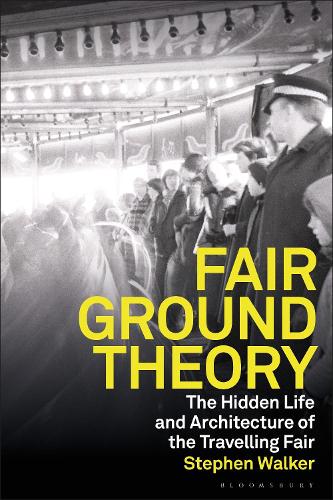
Fairground Theory: The Hidden Life and Architecture of the Travelling Fair
(Hardback)
Publishing Details
Fairground Theory: The Hidden Life and Architecture of the Travelling Fair
By (Author) Professor Stephen Walker
Bloomsbury Publishing PLC
Bloomsbury Visual Arts
8th January 2026
United Kingdom
Classifications
Professional and Scholarly
Non Fiction
History of architecture
Sociology: sport and leisure
Physical Properties
Hardback
256
Width 156mm, Height 234mm
Description
Fairground Theory goes behind the scenes of the travelling fair exploring its design, its atmosphere, and the people and processes that make it happen in order to develop the first architectural theory of the fair.
Even well-known places can be made strange when the fair arrives in town. As visitors to the fair, we are willingly overtaken by the all-round intensity of the environment: loud, fast, bright, busy, and disorientating. Yet the design of the fairground site and its rides seemingly so anarchic and chaotic involves extensive considerations which are usually invisible to visitors. This book reveals these considerations, uncovering the relational architecture of events, bodies, networks, and machines which has long constituted the hidden life of the fairground.
Combining extensive fieldwork and archival study of travelling fairs in the UK, the study also connects to other examples from around the world temporary, ephemeral, and permanent architectures from World Expos and pleasure gardens to amusement parks and parades. Deploying event theory, process philosophy, and the work of thinkers including Whitehead, Simondon, and Stengers, Fairground Theory situates fairs both historic and contemporary within a sustained theoretical exchange with architectural, urban, social and cultural theory.
Author Bio
Stephen Walker is Professor of Architectural Humanities at The Manchester School of Architecture, The University of Manchester, UK.
